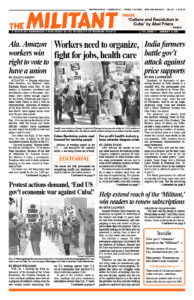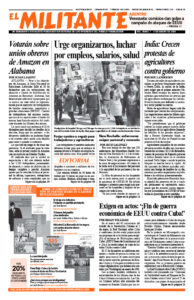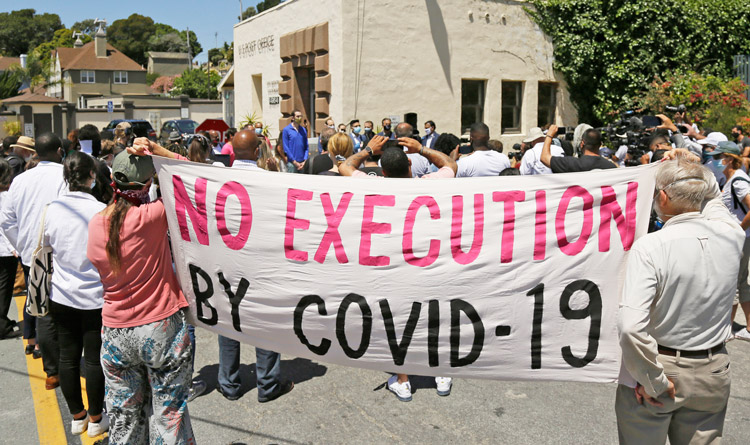Workers behind bars are among those being hit hardest by COVID-19. One in five state and federal prisoners in the U.S. has tested positive for the virus, a rate over four times higher than in the general population. In some states more than half the prisoners have been infected, reported The Associated Press.
New cases this month are reaching some of their highest levels in any time since the 10-month pandemic began. At least 275,000 prisoners have been infected and more than 1,700 have died.
“That number is a vast undercount,” Homer Venters, former chief medical officer at New York’s Rikers Island jail complex, told AP. “I still encounter prisons and jails where, when people get sick, not only are they not tested but they don’t receive care.”
The disease has spread rapidly because prisoners are crammed into overcrowded and poorly ventilated facilities with inadequate health care, and little or none made available to those who get the disease. Some are just thrown into solitary confinement. Guards and other prison personnel who have come down with coronavirus facilitate its spread.
At the Metropolitan Detention Center in Brooklyn, New York, where more than 100 prisoners have tested positive for COVID-19 just since the beginning of December, some sick inmates have been placed in cells with healthy individuals, reports Federal Defenders of New York, a prisoner advocacy group.
Felix Collazo, an inmate infected with coronavirus at this federal jail, was thrown into the hole after speaking to the Daily News Dec. 10 about the appalling medical conditions there.
Half the prisoners in Kansas have been infected with COVID-19. One of them, Donte Westmoreland, who was recently released from Lansing Correctional Facility, caught the virus while incarcerated on a marijuana charge.
“It was like I was sentenced to death,” he told AP.
Westmoreland lived with more than 100 virus-infected men in an open dorm, where men were sick on the floor, unable to get up on their own, he said.
In Arkansas, where over 9,700 prisoners have tested positive and 50 have died, four of every seven have had the virus, the second-highest prison infection rate in the country.
Despite calls by groups like the National Academies of Science, Medicine, and Engineering to release older prisoners and others most medically vulnerable to COVID-19, little has been done.
In the first three months of the pandemic, more than 10,000 federal prisoners applied for compassionate release. Wardens denied or didn’t respond to the vast majority of these requests, approving only 156 in the whole country — less than 2%, AP said.


